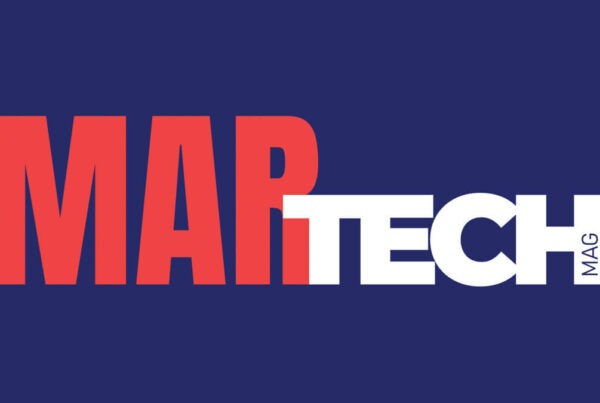In today’s business landscape, technology plays a critical role in transforming B2B (Business-to-Business) marketing strategies. With the rise of digital tools, data analytics, and automation, companies can now reach, engage, and nurture their clients more effectively than ever before. The right technology solutions can help B2B marketers enhance their operations, improve customer experiences, and drive measurable growth. In this article, we will explore how various technologies are revolutionizing B2B marketing and the key tools that businesses should leverage to succeed.
1. Marketing Automation: Streamlining B2B Campaigns
Automated Lead Nurturing
Marketing automation has become an indispensable tool for B2B marketers. It allows businesses to automate repetitive tasks such as email campaigns, social media posting, and lead nurturing. By setting up automated workflows, B2B companies can deliver the right content to their prospects at the right time, building stronger relationships and driving conversions. With automated lead nurturing, companies can stay top-of-mind and guide prospects through the sales funnel, all while reducing manual effort.
Targeted Campaigns
Automation tools help marketers create highly targeted campaigns based on customer segments. These tools allow businesses to track user behavior and engagement, making it possible to send personalized content that resonates with different audiences. By using segmentation and tailored messaging, B2B companies can increase engagement rates and improve the effectiveness of their campaigns, leading to better conversion rates.
2. Data Analytics: Harnessing the Power of Insights
Customer Behavior Tracking
Data analytics tools provide B2B marketers with valuable insights into customer behavior. By tracking key metrics such as website visits, content downloads, and social media interactions, companies can better understand what drives their audience. This data enables marketers to refine their strategies and deliver more relevant content that aligns with their customers’ needs and preferences. With a deeper understanding of customer behavior, businesses can improve engagement, loyalty, and conversion rates.
Predictive Analytics
Predictive analytics is another technology that helps B2B marketers stay ahead of the curve. By analyzing historical data, predictive models can forecast future customer behavior, such as which leads are more likely to convert or which products will be in demand. This allows businesses to proactively adjust their strategies and resources to meet future demand, optimizing marketing and sales efforts for better outcomes.
3. Customer Relationship Management (CRM): Building Stronger Client Connections
360-Degree Customer View
CRM systems are essential for maintaining strong relationships with clients. These platforms centralize all customer data, enabling B2B companies to gain a comprehensive view of their interactions with clients. From contact information and purchase history to communication logs, CRM tools help businesses track every aspect of the customer journey. With this 360-degree view, B2B marketers can offer more personalized and tailored experiences, fostering stronger relationships and greater customer loyalty.
Enhanced Communication
CRM systems also enable seamless communication across departments, ensuring that marketing, sales, and customer service teams are aligned. This integration helps improve client interactions and ensures that the right message is delivered at the right time. With a unified communication strategy, businesses can reduce the chances of customer dissatisfaction and enhance the overall client experience.
4. Social Media and Content Marketing: Engaging Clients through Digital Platforms
LinkedIn and Professional Networks
In B2B marketing, social media plays a vital role in building brand awareness and generating leads. Platforms like LinkedIn are particularly important, as they cater to a professional audience. Martech tools for social media management allow companies to schedule posts, engage with prospects, and track performance on these platforms. By maintaining an active presence on professional networks, B2B companies can connect with potential clients and build relationships that lead to business opportunities.
Content Personalization
Technology enables B2B marketers to deliver personalized content that speaks directly to the needs of their clients. Content marketing platforms allow companies to create and distribute valuable, relevant content through blogs, webinars, whitepapers, and more. By leveraging customer data, businesses can ensure that their content resonates with the right audience, increasing engagement and positioning the company as an industry leader.
5. Artificial Intelligence (AI) and Machine Learning: Automating Insights and Enhancing Efficiency
AI-Powered Chatbots
Artificial intelligence (AI) is transforming B2B marketing by automating tasks and providing insights into customer behavior. AI-powered chatbots, for example, can engage with prospects in real time, answering questions and providing assistance 24/7. By using machine learning algorithms, these chatbots can continuously improve their interactions based on customer responses, offering increasingly personalized experiences and helping drive sales.
Lead Scoring and Predictive Modeling
AI and machine learning are also used in lead scoring, where algorithms analyze data to identify high-potential leads. By predicting which leads are most likely to convert, these tools help marketers prioritize their efforts and focus on the most promising opportunities. Predictive modeling can also forecast customer behavior and suggest the best course of action, improving efficiency and results.
6. Video Marketing: Engaging Clients with Visual Content
Interactive and Personalized Videos
Video marketing is a powerful tool in B2B marketing, and technology has made it even more effective. Interactive videos allow prospects to engage directly with the content, whether by answering questions, choosing their journey, or exploring products in more depth. These videos can be personalized based on customer data, making them more relevant and engaging. By using video in marketing campaigns, B2B companies can increase customer engagement and drive better results.
Video Analytics
Marketing technologies also allow businesses to track the performance of their video content. Video analytics tools provide insights into how prospects interact with videos, such as viewing time, click-through rates, and conversion rates. This data helps marketers refine their video strategies and optimize content for better engagement and higher conversion rates.
Conclusion
Technology is reshaping the way B2B marketers connect with their clients. From marketing automation and CRM systems to AI-powered chatbots and predictive analytics, there are a wide range of tools available to help businesses streamline their operations and improve customer engagement. By leveraging the right technology, B2B companies can drive better results, enhance customer experiences, and stay competitive in a rapidly evolving marketplace. The future of B2B marketing is undoubtedly digital, and technology will continue to play a key role in driving innovation and success.




